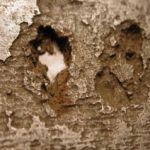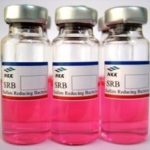Sulfate Reducing Bacteria (SRB) Test Kit
Sulfate-reducing bacteria (SRB) are one of the most common and harmful types of bacteria in industry. SRB are everywhere from 70 meters deep in soil, stagnant water, dead spots in pipes, wells, and sediments. Although these bacteria are anaerobic, they can grow in systems containing dissolved oxygen and get their energy from organic matter. Desulfovibrio, Desulfobacter and Desulfotomaculum are three common types of sulfate reducing bacteria.

A type of sulfate-reducing bacteria called Desulfovibrio vulgaris
Damage caused by Sulfate Reducing Bacteria
In general, the smell of rotten eggs, the blackening of water and devices involved with water, the formation of sludge, and finally, the beginning of severe corrosion processes are among the problems and damages caused by sulfate-reducing bacteria. When the steel is corroded, SRB causes depolarization of the cathode and increases the rate of corrosion by consuming cathode hydrogen, thus accelerating the creation of holes in the steel. Also, the hydrogen sulfide produced by SRB reacts with soluble metals such as iron, zinc, and lead to create insoluble sulfides, which accumulate in all facilities and cause clogging, specifically in production wells, deep equipment, pumps, surface installations, and injection wells are observed.

Corrosion caused by SRB in a storage tank
The SRB test kit is designed based on international standards and the presence of bacteria can be easily identified in the sample with color change of the solution.

